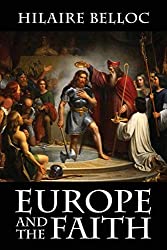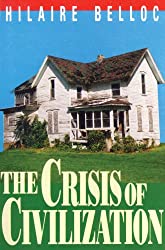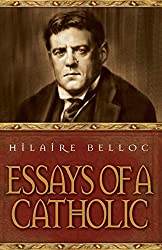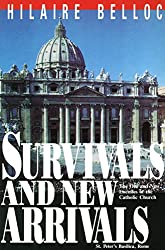
Tomorrow, I turn fifty.
Tomorrow, God willing, I shall go to Our Lady of Knock to commemorate my personal half-century.
Today, I write more personally and autobiographically—to a degree I usually resist, but we shall make an exception here.
Our Lady of Knock: When she appeared to fifteen villagers in the West of Ireland in 1879, she was silent.
She did not speak, then, words like she spoke in Nineteenth Century Catholic France – in Paris and La Salette and more – words that so permeate my soul today. Nor did she weep as she did in Nineteenth Century Catholic France. Tears that likewise permeate and penetrate …
No, she was silent, her arms raised towards heaven, whilst the Irish rain beat down. Beneath her feet, the ground was dry.
My life has been shaped, more than I realise, I think, by those great Nineteenth Century Apparitions of Our Lady. By God’s grace, I was allowed to spend significant time in Lourdes and La Salette, Pontmain and the Rue du Bac in Paris.
The last time I was in Lourdes I made a promise to Our Lady. I will not tell you exactly what it was, dear Reader, but it involved taking Our Lady’s Tears very seriously. Tears she shed for the loss of Catholic Christian civilisation.
I have only been to Knock once so far. But it was sheer joy. An old familiar sensation overcame me in the silence. I recognised something – something I had felt in France, in Lourdes. She was there – that same familiar presence was there.
Sheer joy. I felt and feel immeasurably grateful that Our Lady has hallowed Irish soil. For as dearly as I love Ireland, there are things I miss of France: those extraordinary Apparition sites of Our Lady – as well of His Sacred Heart (in Paray-le-Monial).
Recently, a Priest said something softly to me. ‘Prayer does not go unanswered in Knock’, he said. Kim (my beloved wife and fellow blogger at this site) and I shall go to Knock, remembering these words …
For despite the deep joy in returning to our beloved Ireland, this year has been hard, very hard. Moreover, I still search for ways to honour my promise to honour Our Lady’s Tears.
My upcoming book is part of that promise.
And yet I will be frank. That book causes me no little dread.
This week, as I move towards fifty, move towards Knock, offers harbingers as to why that is.
Two altercations with old friends of mine this week hurt my heart. They cannot see how I have embraced such a traditional Catholicism, so different to the liberal, ecumenical paradigm I once embraced as fully as they still do today.
I do not know how to tell them of Our Lady’s Tears.
Our Lady’s Tears in France, which I could still feel falling to the Earth (in La Salette above all).
France changed me. Or rather France completed, what Ireland had begun. For when I first moved to Ireland in 2004, something in the depths began to stir, something which never had I known in the Protestant lands from whence I came.
Yes, I owe the origins of losing my liberal, ecumenical paradigm to Catholic Ireland.
But it was in France, in the profound silence of Paray-le-Monial, most of all, that the process was finally completed.
And so I went to a Priest in Paray and confessed that I had spent too many years failing to be truly and faithfully Catholic. I resolved, then, to amend my life. Later in Lourdes, I made a further promise to heed Our Lady’s Tears.
Herein, dear Reader, lie the sources of this present website.
Now, the real reason for this change, this confession, lies in the depth of silence that I felt in Paray, above all in the Jesuit chapel of St. Claude La Colombiere.
As such, as silence, the roots of my change can never be expressed in words.

Still, I should like to note certain, much lesser, contributory factors to my transformation.
One such factor lies, you might say, in the ‘ecumenical train wrecks’ caused by Joseph Cardinal Ratzinger, later our Holy Father.
Most notably, Cardinal Ratzinger blew up bridges with the Protestant denominations in the year 2000 with the Vatican document Dominus Jesus.
For with Bl. John Paul II’s seal of approval, Cardinal Ratzinger had refused to call the Protestant denominations ‘Churches’ – as a matter of policy. They are not ‘Churches’ – but ‘Ecclesial Communities’. Here was the policy of the Bl. John Paul II papacy, clearly stated.
Boom, boom, boom went the ecumenical bridges.
And how I longed, in the year 2000, for St. John Paul II to die, so that he might be replaced with an ‘open-hearted, open-minded’ liberal like Cardinal Martini …
Forgive me, St. John Paul II! Back then, to my ever-lasting shame, I did not trust you at all.
I could not hope to understand the reasons you approved Ratzinger’s ‘horrendous’ Dominus Jesus – nor why you claimed that Dominus Jesus was ‘dear to my heart’.
It took me so many years to see, to see what I have written in my upcoming book. Here is a little extract from that book, wherein I am speak of an old Protestant friend talking of the Church as ‘lessons and brotherly love’.

Yet, painfully, I must object to my old friend:
‘Lessons and brotherly love’ – these are good things, indeed, yet so different from the reason Catholics go to Mass.
We have already noted the tendency of the recent papacy to call such congregations ‘Ecclesial Communities’ rather than ‘Churches’. For the Holy Father can never forget the original sense of the Church as a Temple of Mystery – something invoking awe. And, unlike so many people nowadays, the Holy Father certainly recalls that in the early Church, people were not even permitted to enter the second half of the Mass, until they became initiated into the Mystery.
Is it callous and dismissive for the Holy Father to speak like this? Or could it be an act of love?
For in the Anglo-Protestant matrix in which … I [was] born, the true nature of the Church was utterly obscured. Few, I think, regarded it as much more than a place for ‘lessons and brotherly love’ (at best!) … When I was growing up … I had … not the slightest sense of the Church being – first and foremost – a Temple of Mystery.
But there are many things which are obscured in the Anglosphere, because, for the most part, they exist largely outside the Anglosphere. The fullness of the Church lies largely beyond the English-speaking world. This is to say, the Churches of the Seven Sacraments of Mystery – Catholic and Eastern Orthodox – are only dominant in non-Anglophone countries (Ireland excepted) …
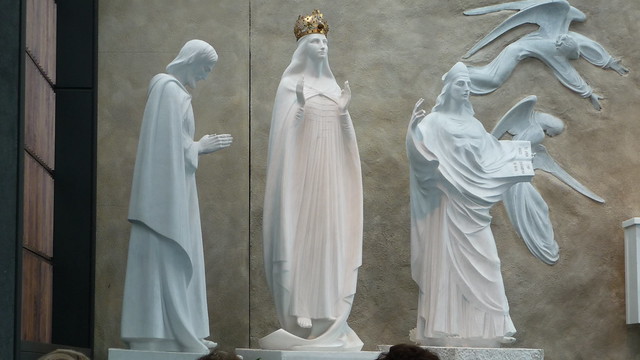
However, these Churches account for perhaps 65 per cent of global Christianity. Though often British and Americans fail to realise it, they represent the dominant kind of Christianity in the world!
To venture into such a Church – a Church of the Pre-Reformation Tradition – is not primarily to seek out ‘lessons’ or community. It is to seek union with the Sacramental Mystery of Jesus Christ. It is to approach the altar so that we might eat His Body and drink His Blood.
All this, of course, was completely lost to me in my Anglo-American youth. And how many other Anglophones have not the least idea at all?!
No, I do not think H.H. Benedict XVI was callous. He pointed to the greatest healing Mystery of all in an arid desert parched of Mystery. And so I offer this brief tribute to the courage of the Holy Father, who dared to resist the scourge of ‘political correctness’.
Here was and is a lonely, brave and heroic soul, who feels acutely the sclerosis of the world and tries to illumine the Mystery of Christ.
May I venture, with impunity, that a place for fostering religious lessons, brotherly love and prayer, is something that deserves respect and gratitude – but it cannot be called ‘Church’ in the original, precise meaning of that word? Are we obliged to sacrifice this meaning, which, moreover, persisted exclusively for some 1,500 years?
Need we be compelled – without thinking twice – to give the name ‘Church’ to a very different entity with a very different purpose?
Whilst this entity retains a noble purpose, let us reflect seriously on everything that has been lost in reducing the Church from a Sacramental Miracle to simply a place for prayer, ‘lessons and brotherly love’!
Yes, it took me so, so many years before I could write things like this.
And I confess it frankly, dear Reader, it is things like this in my upcoming book, things which scandalise my old friends, that make my heart tremble a little.
O Joseph Ratzinger, how I think your heart must have trembled, but you did what you came to trust was right.
Back in the 1960s, you had been an ecumenical liberal yourself, like your good old friend, Hans Küng. For this kind of liberal ecumenicism has been the verve of all Küng’s work. And back in the heyday of the early 1960s, he gave you, Joseph Ratzinger, your job at Tübingen.
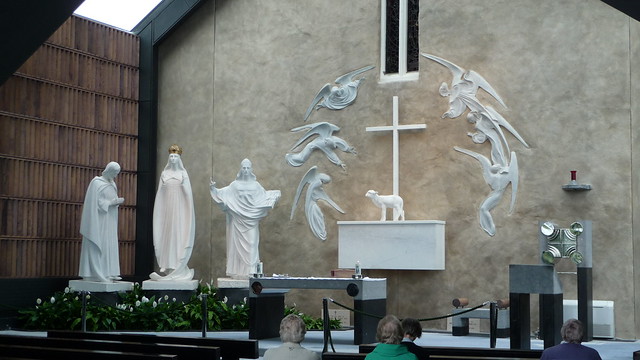
You were evidently very close back then, Joseph Ratzinger and Hans Küng …
But something changed you, Joseph Ratzinger – after 1968.
You were courageous enough to re-examine everything you stood for – and change your course.
It was, I think, your vision of the darkness of the human heart, which led you to abandon Küng’s upbeat liberal, ecumenism …
And in 2012, on the eve of the fiftieth anniversary of the opening of Vatican II, you indicated why you had changed:
We were happy — I would say — and full of enthusiasm. The great Ecumenical Council had begun; we were sure that a new spring of the Church was in sight, a new Pentecost with a new, strong presence of the freeing grace of the Gospel …
In these 50 years we have learned and experienced that Original Sin exists and that it can be evermore expressed as personal sins which can become structures of sin. We have seen that in the field of the Lord there are always tares. We have seen that even in Peter’s net there were bad fish. We have seen that human frailty is present in the Church, that the barque of the Church is even sailing against the wind in storms that threaten the ship …
We have learned that Original Sin exists, you said, and that the ship of the Church is threatened …
Here is what led you, I think, to lose Hans Küng’s upbeat, liberal, ecumenism.
For then, you were sure you said: ‘a new spring of the Church was in sight, a new Pentecost …’
But many years later, you wrote:
What the Popes and Council Fathers were expecting was a new Catholic unity, and instead one has encountered a dissension which – to use the words of Paul VI – seems to have passed over from self-criticism to self-destruction. There had been the expectation of a new enthusiasm, and instead too often it has ended in boredom and discouragement.
There had been the expectation of a step forward and instead one found oneself facing a progressive process of decadence, that to a large measure has been unfolding under the sign of a summons to the presumed ‘spirit of the Council’ …
Real reform of the Church presupposes an unequivocal turning away from the erroneous paths whose catastrophic consequences are already incontestable [Italics mine].
Foreword for Monarchy by Roger Buck
Yes, it took me years to understand how and why the author of the ‘horrendous’ Dominus Jesus had the courage to change.
For years, I pondered your story, Joseph Ratzinger – for it became ever clearer to me what a giant of the spirit you were and are.
I see I do not have a thimbleful of your courage, your moral integrity, your sheer power to hold the pain of the world in your bleeding heart …
Yes Joseph Ratzinger, you played a part in my conversion from Liberal to Traditional …
And then there was Valentin Tomberg, another giant of the spirit, who had nothing good to say of Vatican II and ascribed its ecumenical drives – e.g. towards mixed marriages! (!) – as worldliness …
How that passage from Valentin Tomberg (here) upset me – like nothing else the man ever wrote!
But I stray too far, dear Reader, in all this personal meandering.
For the greatest cause for my conversion in Paray-le-Monial, for my confession of sin in Paray-le-Monial, lies neither with not with these things …
It lies in the silence, the silence most of all in that extraordinary Jesuit chapel in Paray …
And there is also the experience of Our Lady of France, and now Our Lady of Knock …
Our Lady of Knock, my heart flies to you tomorrow, in prayer, seeking answers, seeking courage on my fiftieth birthday.
Ratzinger’s courage.
As well as Hilaire Belloc’s courage.
For I come to you, dear Lady of Knock, haunted also by the life of Hilaire Belloc.
For Belloc stood, steadfastly courageously, for what I have come to stand for, with my knees knocking …
Tomorrow on my fiftieth birthday (just before we leave for Knock, my beloved and I) something will be published at this weblog.
This something is special to me.
It is a long, long piece on Belloc, that I have been working on for over a year.
I enter the Autumn of my life, dear Reader.
Praying to Our Lady of Knock, Our Lady of Ireland. Recalling Our Lady’s Tears in France.
And tomorrow at this website, publicly invoking the so-misunderstood soul of Hilaire Belloc …
Here are significant pointers, I think, to what the rest of my days will involve.
I shall stop now – with a final little thank you.
Thank you to all those of you who follow this site.
Thank you to those who pray for us.
And thank you, too, to those who have supported this site recently by using our Amazon links. We appreciate it – a lot.
Till tomorrow …
Feast of St. Francis of Assisi, 4th October 2014
Foreword for Monarchy by Roger Buck
Buying Books at Amazon Through These Links Gives Us a Commission. This Supports Our Apostolate. Thank You if You Can Help Us Like This!





